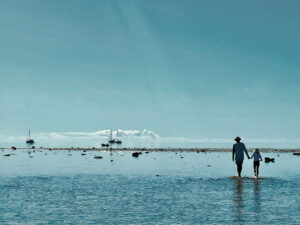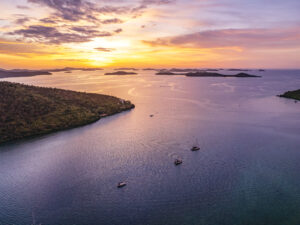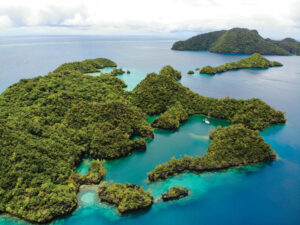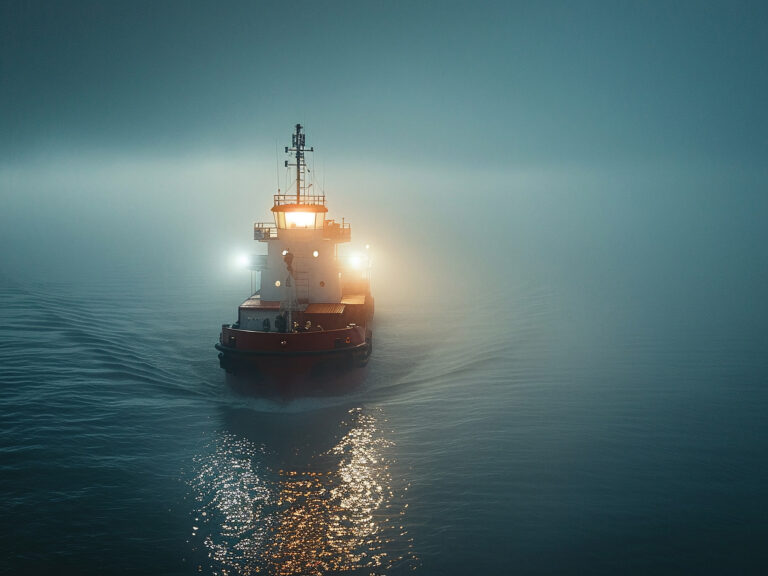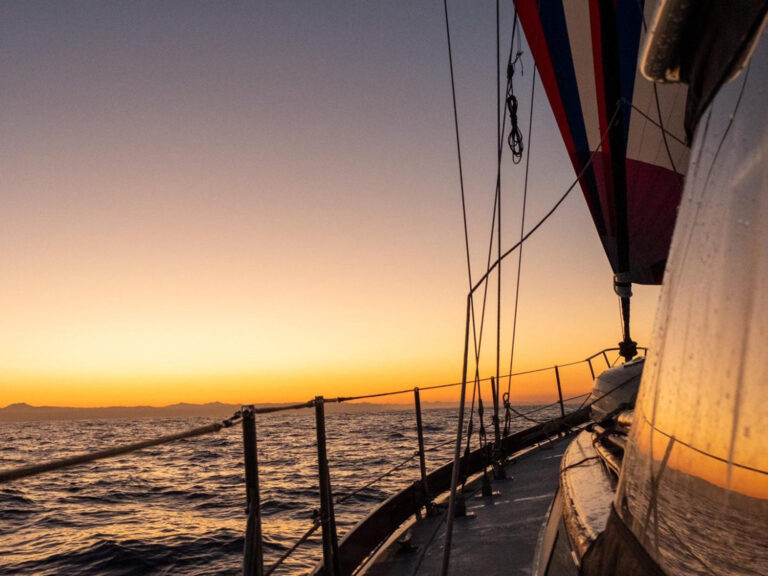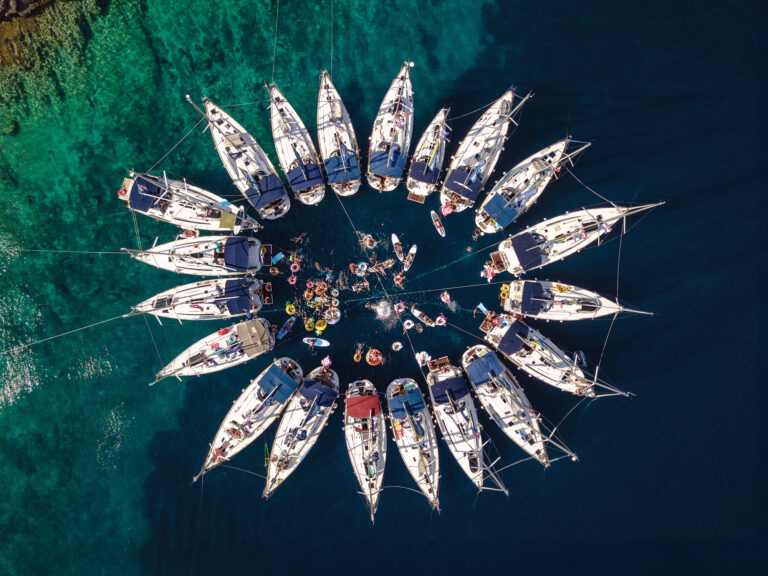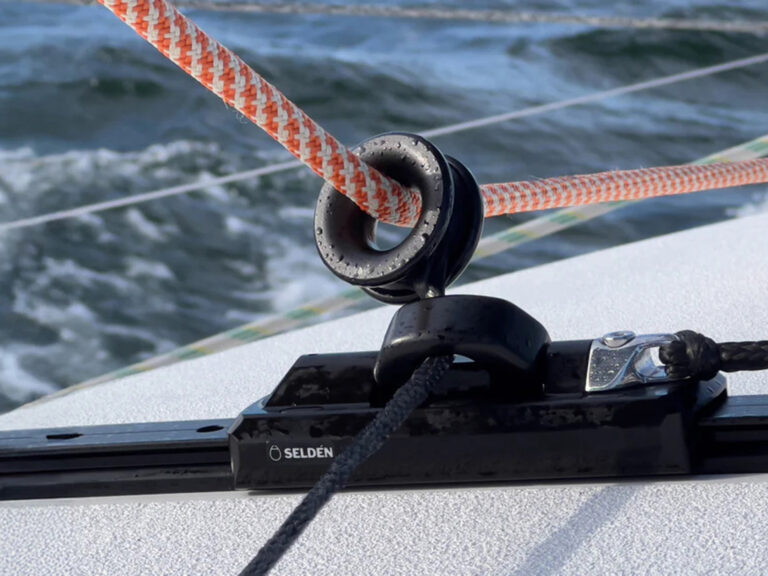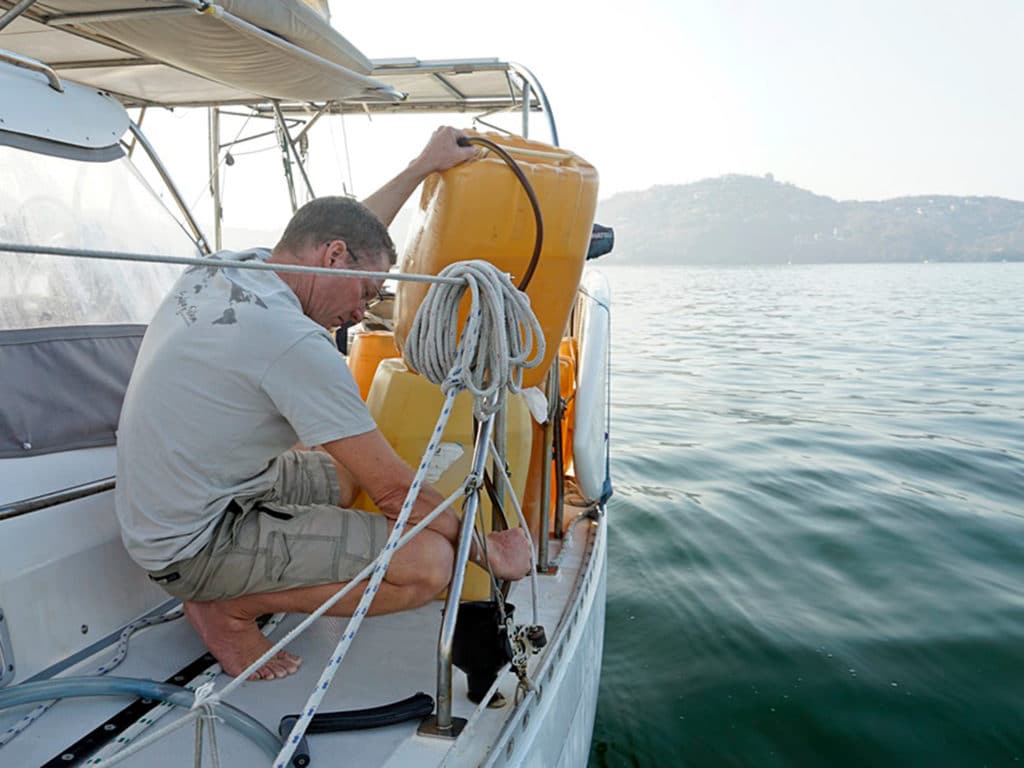
“Come back tonight,” said Jamie’s new friend, a businessman in a remote Indonesian port. He had agreed to help us buy diesel. It’s technically illegal to purchase in Indonesia as a non-citizen, and yet we all find a way…eventually. After several dead ends, this fellow was our ticket. We had been repeatedly foiled: in a part of the country where foreigners are presumed to be one of the three Ms (missionaries, miners, or mercenaries), our uncertain status meant interrogation and secret police trails. We had a very real challenge to source fuel; the offers of new friends inexplicably rescinded, fading into the inscrutable highlands. Of course this man preferred that we shuttle the goods from our clandestine transaction under cover of darkness!
For cruisers who venture just a little way off the beaten path, and even for some those who don’t, finding the fuel we all consume (despite the lovely white flappy things) and getting it into your tanks can sometimes be a little complicated.
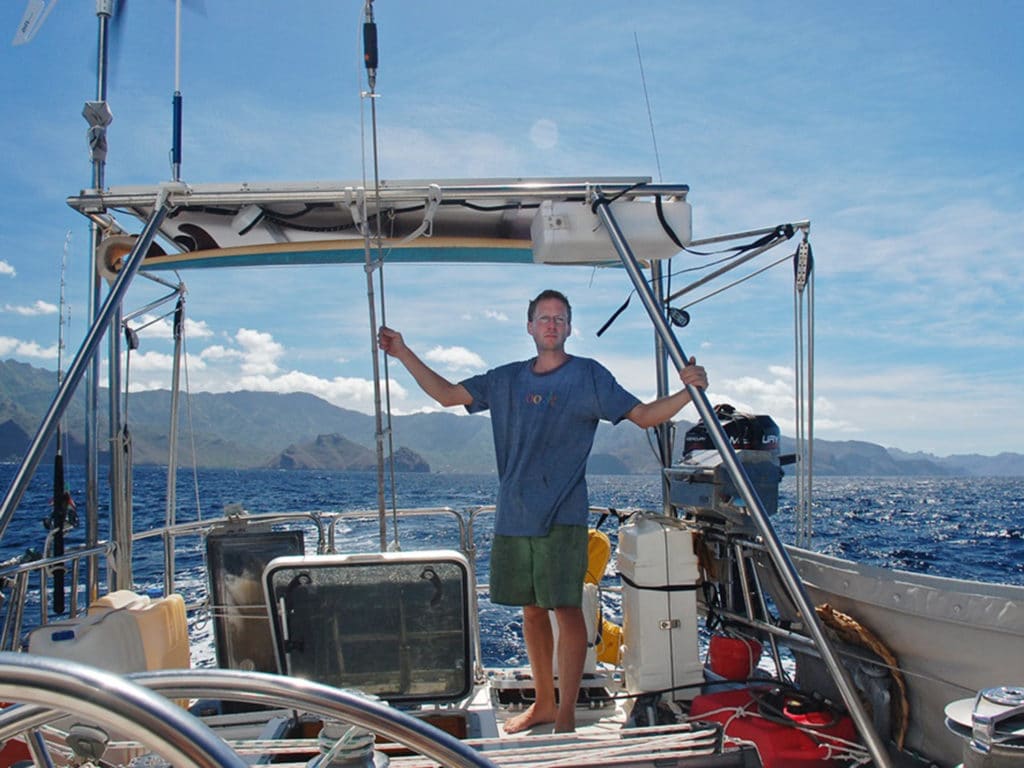
Fuel docks may be sprinkled around where boating is popular in North America. Yet in many parts of the popularly cruised world, the fuel dock is a rare commodity. Along Totem’s westabout circumnavigation we used fuel docks in Mexico, again in Australia, in Malaysia, then South Africa, and then not again until we landed back on the US East Coast. A little more than one per ocean: that’s not much, and we are hardly sailing purists! Oh, there was probably a dock in Tahiti that we didn’t use, but I do remember dinghy wrangling against a rough concrete wharf in Nuku Hiva while dropping 50-liter (13+ gallon) jerry cans over the scrabbly edge as we rose and fell with the foaming surge. No fuel dock for us in Nuku Hiva, or any of the Marquesas island group.
What do we do? It varies by location, and jerry cans feature prominently. The name “jerrycan” references the German origins, and the slang name for Germans when these were designed in the 1930s. Those were pressed steel; plastic rules now, sometimes covered for UV protection.
Totem’s back end is wide for a classic plastic, leaving ample room behind our center cockpit for lashing cans (currently, five) to stern rails. Amidships with a board to distribute weight and support is common.
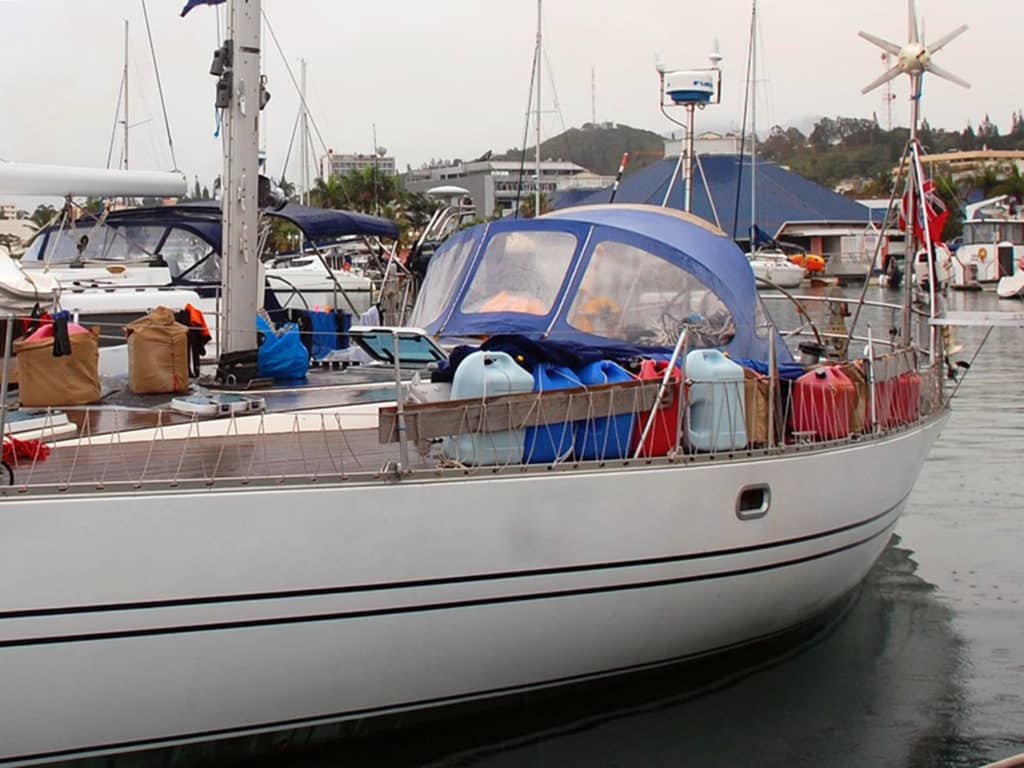
A bushel of peaches; Enough rice to feed our family for about four months; An average four-year-old child—these are things that weigh as much as a jerrycan full of diesel! There’s storing them… and then there’s schlepping them.
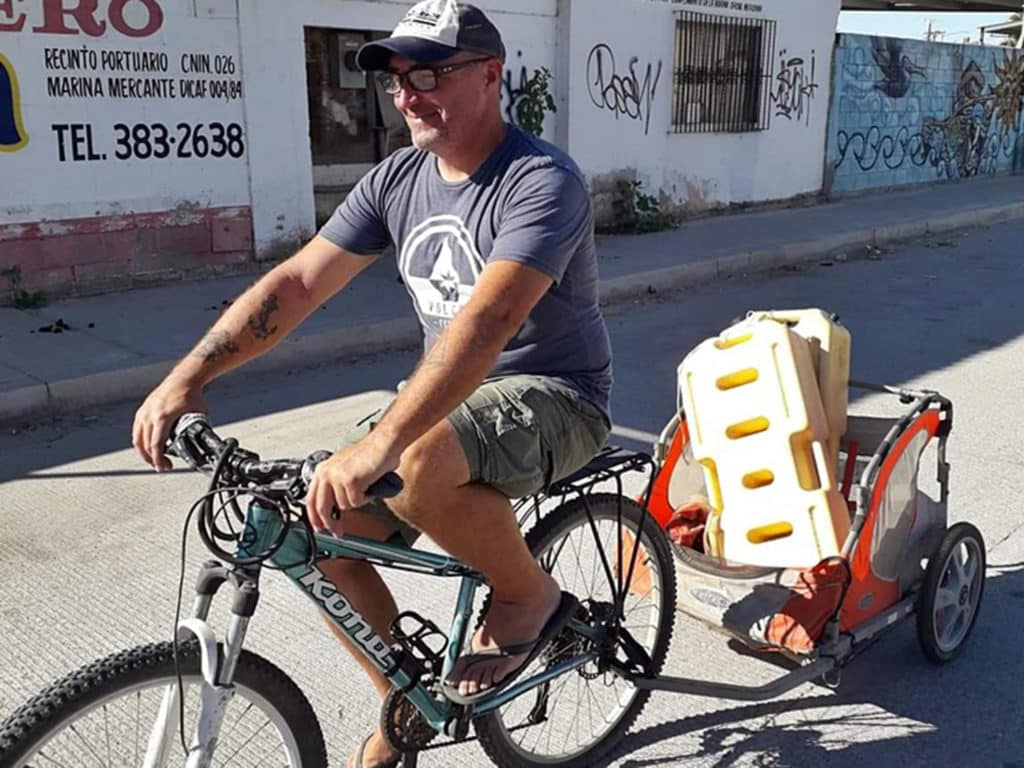
Given weight combined with awkward size, it’s worth thinking about how to get these around. In our early cruising days, we had a robust hand truck that served the purpose. In later years, we relied more on muscle.
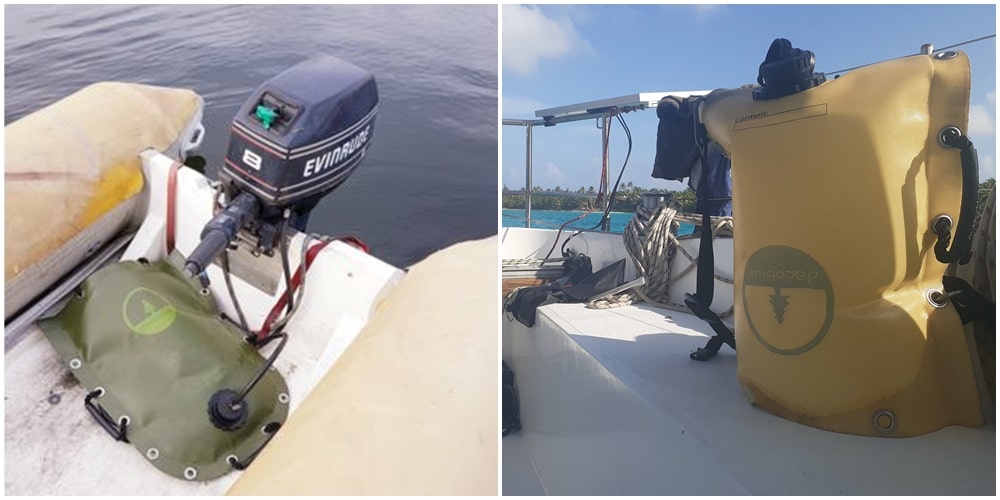
Sometimes accommodation can be found (a stray grocery cart). In the Sea of Cortez this last year, the crew of Avalon shared their trailer (combined with bike or scooter) to lighten the load of fellow cruisers.
Particularly innovative: flat-pack carriers from Dacoblu. The brainchild of a Swedish cruiser we met in Saint Helena (as you do, moorings adjacent), these are durable, wearable backpacks – specially designed for carrying fuel (or water, just don’t mix them up) comfortably on foot. It even doubles as a dinghy tank! They can roll up and stow easily when empty. We tested and are impressed.
Sometimes it’s not a jerrycan that gets us fueled. In Maldives, the fuel barge is scheduled to come to your location in the anchorage near the capital city of Male. With an umbilical fuel hose connecting barge to boat and vessels throwing wakes as they fly by, the operation is tricky.
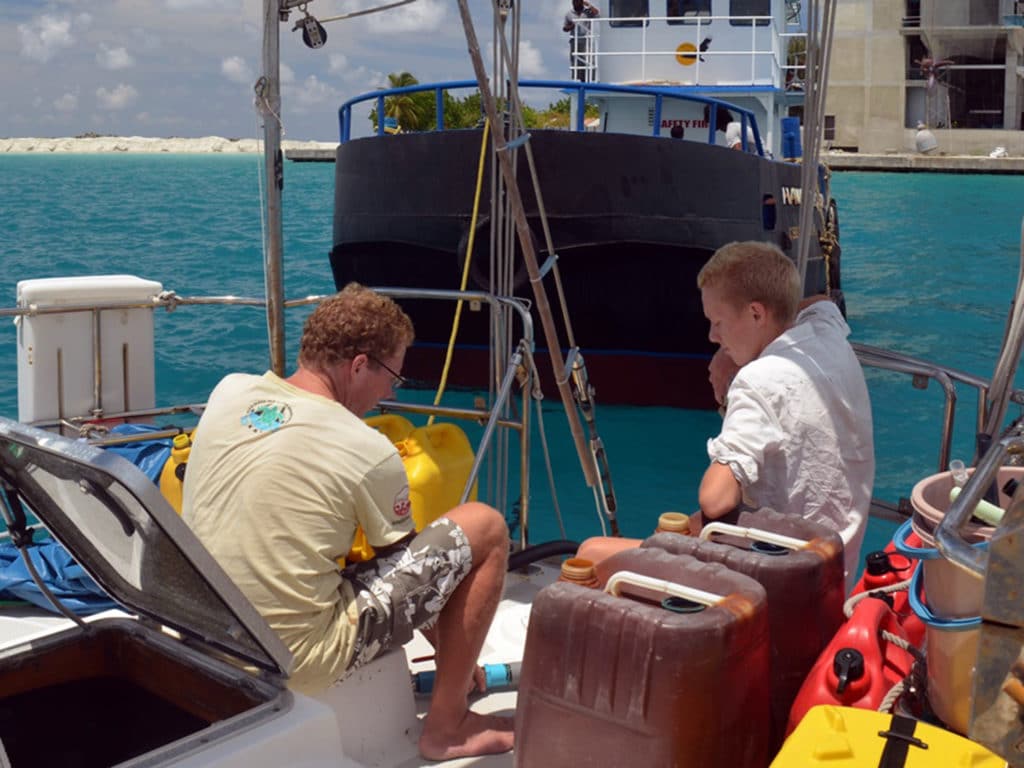
In Papua New Guinea we fueled from barrels are brought alongside; crews spun up a manual crank to feed diesel up to the waiting boat.
The fueling experience we’ll never forget: in Brunei, with our Qatari guide. None of us were legally supposed to purchase (subsidized) fuel in the country. A story of persistence, perseverance, begging, refusal to admit defeat, and a whole lot of jerry cans…buy us a beer sometime, we’ll kick back and tell the tale!
We love sailing; one of the reasons I’m so excited about our big passage to French Polynesia next month (NEXT. MONTH!) is the promise of days under sail: glorious! But carrying fuel is unavoidable, and there is a paucity of fuel docks to make it easy once you strike out.
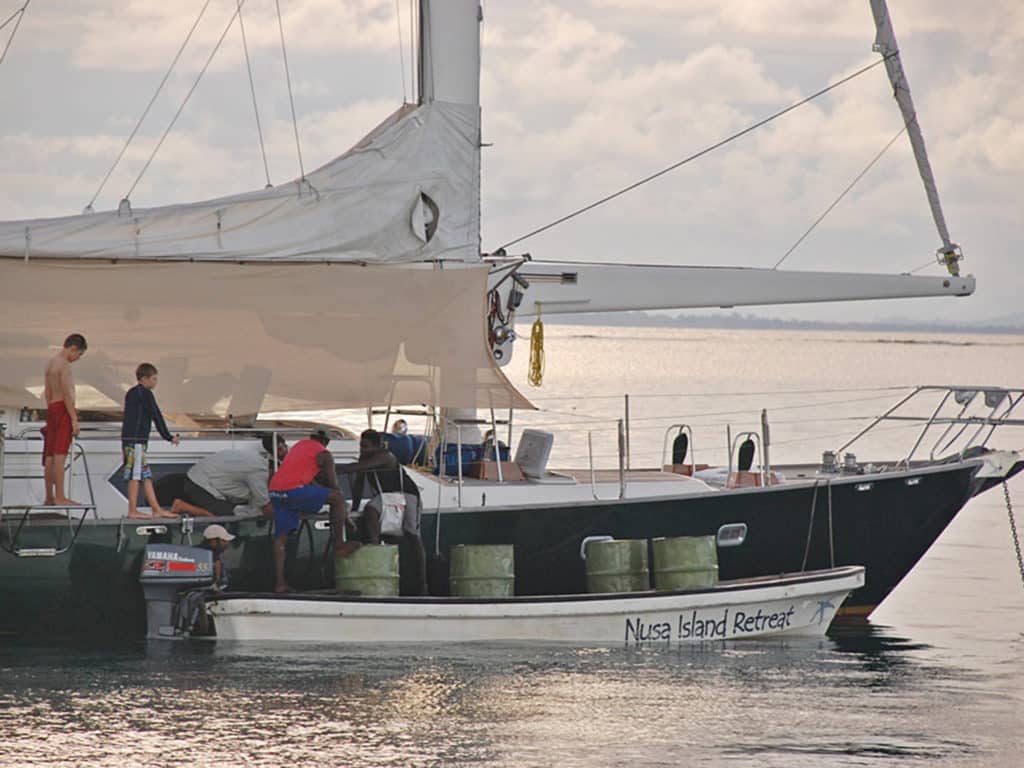
Our goal is to take off from Mexico in the first week of April. Lists have spawned lists in an effort to stay organized. After nearly four years in North America, we’re feeling the looming gap from the land of Easy and Access, and trying to keep focus.
Last weekend was our final bit of travel before departure – it was a lot of fun to share an evening with the Bluewater Cruising Association and an honor to headline their Ocean Adventurers Series for 2020. The chance to visit my parents, and aunties, a very dear cousin and her adorable baby were sweet… and now that it’s behind us, there’s no pushing off passage prep!
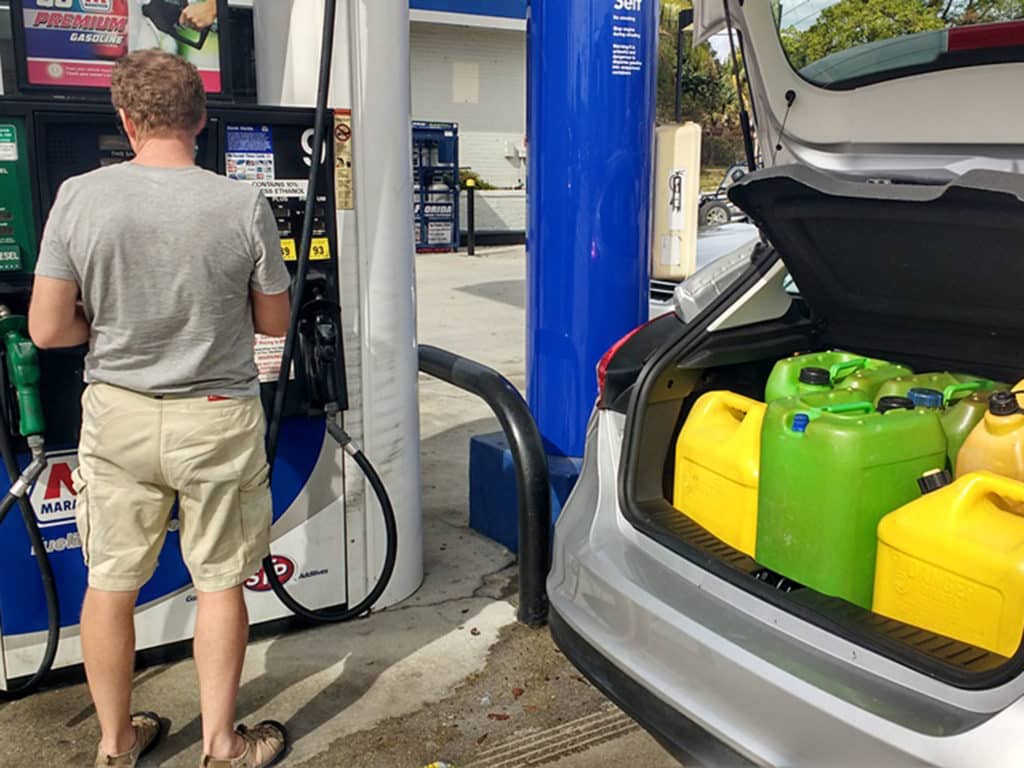
For many cruisers, this is where you look over the edge of what feels like a very steep cliff. We’re not immune to that gut-dropping feeling of a major passage, but the dynamics are a lot different than when we did it from this same spot ten years ago. The stressors come from different places, this time. Not the unknown of weeks at sea, but the farewells, the miles we’ll put between ourselves and family, the tenuousness of supporting ourselves through the internet – and heading into the land of minimal connectivity.
Coaching services hiatus
We’ll stop taking new coaching clients at the middle of this month. One of the tenets of our business is the personal connection we make with everyone who reaches out for our support to help them go cruising. With time skewing towards our own prep and limited internet access ahead, it simply makes sense. We can serve existing clients on lower bandwidth, but really like the opportunity to better connect through video chats for new relationships; that won’t be possible for a while. When we start up again is as certain as a cruiser’s route plan – “written in sand, at low tide!” – but likely from Samoa or Fiji, around August or September. If you’re keen to be on our call list when we do, just send us a quick note.

